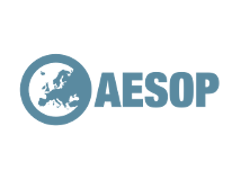About the event
Planning Education in a Digital World
Digital technology and tools have pervaded all spheres of society and life, planning professional practice and education included. One can differentiate between the technologies and tools used for/in planning, and those which are used in planning education. Most of the planning programmes in Europe and across the globe introduce their students to various software tools for data collection, management and analysis, as well as visualisation and graphical communication of information, ideas, designs, and proposals. From basic spreadsheet, statistical analysis and presentation tools, the technological toolbox has expanded to include geographic information systems (GIS), simulation/modelling, 3D visualisation tools, social media and mobile applications for collection of user-generated content (e.g. crowd-sourcing, volunteered geographic information — VGI). The software skills are highly demanded and valued by planning organisations — both public and private. At the same time, the acquisition of these skills in the course of undergraduate or graduate planning studies competes with other programme content requirements (in some cases prescribed by accreditation bodies).
Planning educators are faced with hard choices and have to find effective ways of incorporating the technology in their teaching. In addition, other set of technologies — educational technologies — is being promoted by both university administrations and industry. While some of the software tools for planning could serve the educational purposes, there are also specific educational technologies, which impose another layer of complexity in the teaching process. Online teaching with digital 'blackboards', discussion threads and blogs, Internet-based research sources, virtual labs, and Massive Online Open Courses (MOOCs), are all challenging the traditional methods, without clear understanding of their benefits or improvements they bring to the students' learning process.
This workshop is intended to critically examine the topic by raising the relevant questions and promoting a constructive dialogue among planning educators. What are the experiences? What have we learned so far? How do we respond? Where is the balance? What are the challenges?
Workshop 1: Big data vs field work
In a recent public event, a panellist (planning consultant) stated that Google Maps/Earth have had a negative effect on the work in his office. Namely, rather than going to the field (town, neighbourhood, site) some of the colleagues resort to the digital resources for the purpose of familiarisation with the project area. The proliferation and accessibility of digital data (big data in particular) have reduced the need for fieldwork. But, could fieldwork be replaced? What are the consequences of dealing with spaces through digital sources? What would be the most beneficial use of digital resources?
Workshop 2: Online courses vs classroom
Planning education has gone online. Nowadays, it is possible to obtain a whole planning degree remotely via the Internet; increasingly, a partial content — several modules/courses might be available for online learning within the traditional programme structure; finally Massive Online Open Courses (MOOCs) are available from any place and institution on the globe. Could planning be taught online? What is gained and what is lost in the process?
Workshop 3: Virtual vs place-based studios
Studio work is essential for planning education. Practical examples of planning issues and dealing with them in a workshop setting is a well-practiced and proven method in most (if not all) planning schools. The interactions of students in the physical studio spaces offer valuable experiences in teamwork and human interaction, particularly if a different disciplinary perspective is included. Ideas emerge as students work in groups or individually side by side, and the expression and examination of their ideas is facilitated by the physical presence and proximity. How feasible are the virtual studios? How do the virtual and place-based studio compare, i.e., what are the advantages and disadvantages of each?




